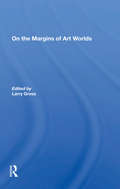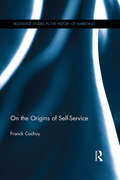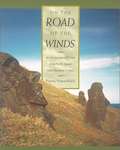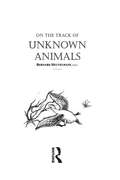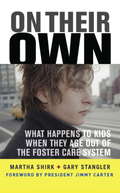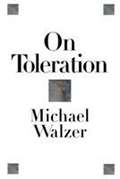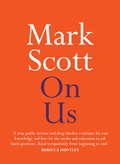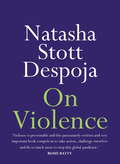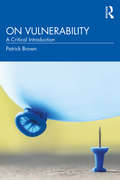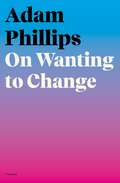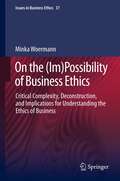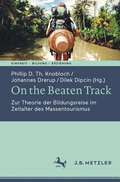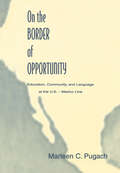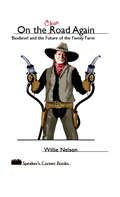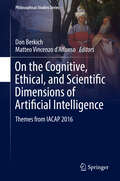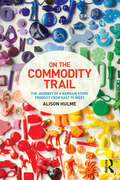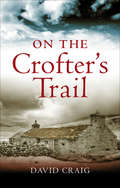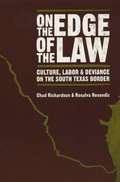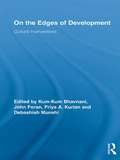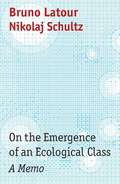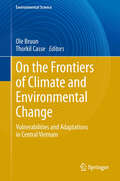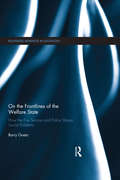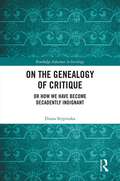- Table View
- List View
On The Margins Of Art Worlds
by Larry GrossDuring the late 1980s, the near-worship of artistic genius produced auction sales of works by Vmcent Van Gogh and Pablo Picasso for tens of millions of dollars, over $15 million for a painting by Jasper Johns, and record prices for works by many other deceased and even living masters. At the same time, it was no longer controversial in academic and intellectual circles to maintain that art works are the products of what Howard Becker has termed collective activity carried out within loosely defined art worlds: Works of art, from this point of view, are not the products of individual makers, "artists" who possess a rare and special gift. They are, rather, joint products of all the people who cooperate via an art world's characteristic conventions to bring works like that into existence. Artists are some sub-group of the world's participants who, by common agreement, possess a specialgift, therefore make a unique and indispensable contribution to the work, and thereby make it art. (1982: 35) The concept of the art world-with its central focus on the collective, social, and conventional nature of artistic production, distribution, and appreciation--confronts and potentially undermines the romantic ideology of art and artists still dominant in Western societies.
On The Origins of Self-Service (Routledge Studies in the History of Marketing)
by Franck CochoyMost marketing scholars implicitly consider independent merchants as conservative and passive actors, and study the modernization of retailing via department stores, chains and supermarkets. In this innovative study, Franck Cochoy challenges this perspective and takes a close look at the transformation of commerce through the lens of Progressive Grocer, an American trade magazine launched in 1922. Aimed at modernizing small independent grocery stores, Progressive Grocer sowed the seeds for modern self-service which spread in small retail outlets, sometimes well before the advent of the large retail spaces which are traditionally viewed as the origin of the self-service economy. The author illustrates how this publication had a highly influential role on what the trade considered to be best practice and shaped what was considered to be cutting edge. By displacing the consumer and their agency from the centre of analytic attention, this innovative book highlights the complex impact of social, technical and retailing environment factors that structure and delimit consumer freedom in the marketplace. This detailed critical analysis of the origins of self-service will be of interest to a wide variety of scholars not only in marketing and consumer research, but also in business history, sociology and cultural studies.
On The Road Of The Winds: An Archaeological History Of The Pacific Islands Before European Contact
by Patrick Vinton KirchThe Pacific Ocean covers one-third of the earth's surface and encompasses many thousands of islands, the home to numerous human societies and cultures. Among these indigenous Oceanic cultures are the intrepid Polynesian double-hulled canoe navigators, the atoll dwellers of Micronesia, the statue carvers of remote Easter Island, and the famed traders of Melanesia. Recent archaeological excavations, combined with allied research in historical linguistics, biological anthropology, and comparative ethnography, have begun to reveal much new information about the long-term history of these Pacific Island societies and cultures. On the Road of the Winds synthesizes the grand sweep of human history in the Pacific Islands, beginning with the movement of early people out from Asia more than 40,000 years ago, and tracing the development of myriad indigenous cultures up to the time of European contact in the sixteenth to eighteenth centuries. Questions that scholars have posed and puzzled over for two centuries or more are illuminated here: Where did the Pacific Islanders come from? How did they discover and settle the thousands of islands? Why did they build great monuments like Nan Madol on Pohnpei Island in Micronesia or the famous Easter Island statues? This book provides an up-to-date synthesis of archaeological and historical anthropological knowledge of these fascinating indigenous cultures. In particular, Kirch focuses on human ecology and island adaptations, the complexities of island trading and exchange systems, voyaging technology and skills, and the development of intensive economic systems linked to the growth of large populations. He also draws on his own original field research conducted on many islands, ranging from the Solomons to Hawai'i, as he takes us on an intellectual voyage into the Oceanic past.
On The Track Of Unknown Animals
by Bernard HeuvelmansFirst published in 1995. It will soon be forty years since the original edition of this work, Sur la piste des bêtes ignorées (1955), appeared in French. With this book, the great adventure of ‘Cryptozoology’, the science of hidden animals, began.
On Their Own: What Happens to Kids When They Age Out of the Foster Care System
by Martha ShirkOn Their Own tells the compelling stories of ten young people whose lives are full of promise, but who face economic and social barriers stemming from the disruptions of foster care. This book calls for action to provide youth in foster care the same opportunities on the road to adulthood that most of our youth take for granted--access to higher education, vocational training, medical care, housing, and relationships within their communities. On Their Own is meant to serve as a clarion call not only to policymakers, but to all Americans who care about the future of our young people.
On Toleration
by Michael WalzerWalzer examines five "regimes of toleration" -- from multinational empires to immigrant societies -- and describes the strengths and weaknesses of each regime, as well as the varying forms of toleration and exclusion each fosters. He shows how power, class, and gender interact with religion, race, and ethnicity in the different regimes and discusses how toleration works, and how it should work, in multicultural societies like the United States.
On Us
by Mark ScottStop. Listen. Step outside the echo chamber.How do we step outside our own echo chamber to understand others? What are we losing when we share fewer and fewer national moments? The new media is enabling despots and disempowering democracy. So when every opinion seems to matter equally, ON US invites us to switch our devices off and to read uninterrupted. It contemplates why more information often means less insight.
On Violence
by Natasha Stott DespojaWhy is violence against women endemic, and how do we stop it?Every two minutes, police are called to a family violence matter. Every week, a woman is killed by a current or former partner.This is Australia's national emergency.Violence against women is preventable. It is not an inevitable part of the human condition. It is time to create a new normal. It is time to stop the slaughter in our suburbs.
On Vulnerability: A Critical Introduction
by Patrick BrownOn Vulnerability maps out an array of perspectives for critically examining the nature of vulnerability, its unequal patterning across different social groups, alongside the everyday social processes that render us vulnerable – interactions, identity and group dynamics. Each chapter equips the reader with a particular sensitising framework for navigating and questioning what it means to be vulnerable or how people cope amid vulnerability. From deviance, stigma and the spoiling or fracturing of identity, to perspectives such as intersectionality, risk, emotions and the vulnerable body, the book traces the theoretical roots of these different analytical lenses, before applying these through illuminating examples and case studies. Drawing on scholarship across more interpretative, analytic and critical traditions, the chapters combine into a multi-dimensional toolkit which will enable the study of the cultural meanings of vulnerability, the political-economic factors that shape its patterning, with a critical sensibility for ‘unlearning’ many assumptions, therefore challenging our sense of who is, or who can be, vulnerable. This book is designed to equip undergraduate and post-graduate students and researchers across the social, health and human sciences, aiding them as they study and question the experiences and structures of vulnerability in our social world.
On Wanting to Change
by Adam PhillipsFrom the UK’s foremost literary psychoanalyst, a dazzling new book on the universal urge to change our lives.We live in a world in which we are invited to change—to become our best selves through politics, or fitness, or diet, or therapy. We change all the time—growing older and older—and how we think about change changes over time too.We want to think of our lives as progress myths—as narratives of positive personal growth—at the same time as we inevitably age and suffer setbacks.Adam Phillips’s sparkling book On Wanting to Change explores the stories we tell about change, and the changes we actually make—and the fact that they don’t always go, or come, together.
On the (Im)Possibility of Business Ethics: Critical Complexity, Deconstruction, and Implications for Understanding the Ethics of Business
by Minka WoermannCorporations, and the environments in which they operate, are complex, with changing multiple dimensions, and an inherent capacity to evolve qualitatively. A central premise of this study is that a postmodern reading of ethics represents an expression of, and an engagement with, the ethical complexities that define the business landscape. In particular, the deconstructive philosophy of Jacques Derrida offers a non-trivial reading of a complex notion of ethics, and thereby helps us to develop the skills necessary to critique and intervene in our practices, and to develop robust strategies for living in the absence of prescriptive ethical frameworks. Although a central premise of this study is that substantive ethical claims can only be generated within a given context, the study nevertheless presents readers with a meta-position that illustrates the type of considerations that should inform ethical reflection from a complexity perspective. In order to illustrate the value that this meta-position holds for business ethics, these considerations are explored in terms of the implications that they hold for our understanding of corporate social responsibility, for the practice of responsible management and leadership practices, and for teaching business ethics.
On the Beaten Track: Zur Theorie der Bildungsreise im Zeitalter des Massentourismus (Kindheit – Bildung – Erziehung. Philosophische Perspektiven)
by Johannes Drerup Phillip D. Th. Knobloch Dilek DipcinWir leben in einer Welt der ausgetretenen Pfade. Es gibt kaum ein Ort auf diesem Planeten – vom Mount Everest Base Camp bis zur Antarktis –, der nicht in ein Objekt und Produkt möglicher touristischer Erfahrung transformiert wurde oder wird. In der globalen Praxis und im weltumspannenden sozioökonomischen System des modernen Massentourismus spiegeln sich wie in einem Brennglas die Ambivalenzen, Paradoxien und Widersprüche (post-)moderner Formen der individuellen und kollektiven Lebensführung und Selbstverständigung. Dies gilt auch für die in diesem Band diskutierten Zusammenhänge zwischen Reisen und Bildung, die nicht zu trennen sind von Formen der sozialer Distinktion und Ungleichheit, von Hierarchisierungen und Ranglisten und von Macht und Politik.
On the Border of Opportunity: Education, Community, and Language at the U.s.-mexico Line (Sociocultural, Political, and Historical Studies in Education)
by Marleen C. PugachIn 1993, the author set out to try and gain some understanding about school and community in Havens, New Mexico--a place where she had the opportunity to be immersed in border culture, where she could learn how the border figured into everyday life, and where she could pay uninterrupted attention to the issues as they occurred in the personal and professional lives of those who taught in and administered the schools--and in the lives of the students who studied there. This book offers an interpretation that is disciplined by the long hours, days, and months spent in Havens, and by the personal stance the author brings to the study of a place and its people. This book tells the story of Havens from the perspective of what it is, of the present in all of its complexity, and as a window on what might exist in the future in this border community. It begins with a description of Havens and its inevitable interdependence with its Mexican neighbors, followed by an introduction of three "cultural mediators"--two students and one teacher from Havens High School. Focusing on the relationship between the use of Spanish and English, the language landscape in the community and in the schools is laid out. This is followed by a specific description of the development of bilingual education programs in the district, and an introduction of the social structure of the high school, describing the students' interactions across cultural lines. The final chapter presents an alternative metaphor for thinking about the border and identifies markers of opportunity that already exist in Havens as it works toward defining what it means to be a bicultural and binational community.
On the Clean Road Again
by Willie NelsonFor more than 40 years, Willie Nelson has been a national treasure, contributing many memorable songs to our musical canon. His impact, however, extends far beyond the scope of his music. A champion of family farms, Nelson has helped mobilize support for the American farmer, both as a founder of Farm Aid and more recently as one of the nation's most knowledgeable and recognized advocates of the use of biodiesel-a clean-burning, renewable fuel made from vegetable oils or animal fats. In this funny and inspirational book, Nelson confronts our dependency on foreign oil as a source of energy. Through facts, stories, and interviews with everyday Americans, he explains the benefits of biodiesel as an alternative fuel that not only drastically reduces carbon dioxide emissions, but also may help save our family farms.
On the Cognitive, Ethical, and Scientific Dimensions of Artificial Intelligence: Themes from IACAP 2016 (Philosophical Studies Series #134)
by Don Berkich Matteo Vincenzo D’AlfonsoThis edited volume explores the intersection between philosophy and computing. It features work presented at the 2016 annual meeting of the International Association for Computing and Philosophy. The 23 contributions to this volume neatly represent a cross section of 40 papers, four keynote addresses, and eight symposia as they cut across six distinct research agendas. The volume begins with foundational studies in computation and information, epistemology and philosophy of science, and logic. The contributions next examine research into computational aspects of cognition and philosophy of mind. This leads to a look at moral dimensions of man-machine interaction as well as issues of trust, privacy, and justice. This multi-disciplinary or, better yet, a-disciplinary investigation reveals the fruitfulness of erasing distinctions among and boundaries between established academic disciplines. This should come as no surprise. The computational turn itself is a-disciplinary and no former discipline, whether scientific, artistic, or humanistic, has remained unchanged. Rigorous reflection on the nature of these changes opens the door to inquiry into the nature of the world, what constitutes our knowledge of it, and our understanding of our place in it. These investigations are only just beginning. The contributions to this volume make this clear: many encourage further research and end with open questions.
On the Commodity Trail: The Journey of a Bargain Store Product from East to West (Criminal Practice Ser.)
by Alison HulmeFollowing the journey of eight bargain store objects, Alison Hulme reveals the complex story behind society’s simplest and cheapest commodities. Inspired by Walter Benjamin’s Arcades Project, On the Commodity Trail explores the colourful and fascinating histories of everyday objects.Along the way, we observe raw materials on municipal rubbish dumps in China, newly re-made products in the world’s largest wholesale market, and take a journey across the seas, to bargain stores in Europe and North America, arriving finally in the homes of consumers. Weaving together narratives from the people we meet at different parts of the commodity chain – waste peddlers, wholesalers, store owners, and shoppers – the book examines the places and people at the heart of these localized yet immense global networks.Unlike other investigations of commodity chains, this study does not chart a straightforward trajectory from production to consumption. Instead, it demonstrates that the low-end commodity chain is one of constant rupture in which products are made and re-made, blurring the dividing line between producing and consuming.An ethnography of material culture as well as an examination of commodity culture at a time of economic downturn, this deeply-engrossing book makes a unique contribution to our understanding of commodity chains and consumer culture.
On the Corner
by Daniel MatlinIn July 1964, after a decade of intense media focus on civil rights protest in the Jim Crow South, a riot in Harlem abruptly shifted attention to the urban crisis embroiling America's northern cities. On the Corner revisits the volatile moment when African American intellectuals were thrust into the spotlight as indigenous interpreters of black urban life to white America, and examines how three figures--Kenneth B. Clark, Amiri Baraka, and Romare Bearden--wrestled with the opportunities and dilemmas their heightened public statures entailed. Daniel Matlin locates in the 1960s a new dynamic that has continued to shape African American intellectual practice to the present day, as black urban communities became the chief objects of black intellectuals' perceived social obligations. Black scholars and artists offered sharply contrasting representations of black urban life and vied to establish their authority as indigenous interpreters. As a psychologist, Clark placed his faith in the ability of the social sciences to diagnose the damage caused by racism and poverty. Baraka sought to channel black fury and violence into essays, poems, and plays. Meanwhile, Bearden wished his collages to contest portrayals of black urban life as dominated by misery, anger, and dysfunction. In time, each of these figures concluded that their role as interpreters for white America placed dangerous constraints on black intellectual practice. The condition of entry into the public sphere for African American intellectuals in the post-civil rights era has been confinement to what Clark called "the topic that is reserved for blacks. "
On the Crofter's Trail: In Search Of The Clearance Highlanders
by David CraigTracing the legacies of the small farmers displaced and scattered in nineteenth-century Scotland, this is &“a powerful, poetic, personal Highland Odyssey&” (Times Literary Supplement). In the Clearances of the nineteenth century, crofts—once the mainstay of Highland life in Scotland—were swept away as the land was put over to sheep grazing. Many of the people of the Highlands and islands of Scotland were forced from their homes by landowners in the Clearances. Some fled to Nova Scotia and beyond. In this book, David Craig sets out to discover how many of their stories survive in the memories of their descendants. He travels through twenty-one islands in Scotland and Canada, many thousands of miles of moor and glen, and presents the words of men and women of both countries as they recount the suffering of their forebears. &“[David] has the eye, the imagination and the descriptive density of early Bruce Chatwin.&” —Toronto Globe & Mail
On the Digital Humanities: Essays and Provocations
by Stephen RamsayA witty and incisive exploration of the philosophical conundrums that animate the digital humanities Since its inception, the digital humanities has been repeatedly attacked as a threat to the humanities: warnings from literary and cultural theorists of technology overtaking English departments and the mechanization of teaching have peppered popular media. Stephen Ramsay&’s On the Digital Humanities, a collection of essays spanning the personal to the polemic, is a spirited defense of the field of digital humanities. A founding figure in what was once known as &“humanities computing,&” Ramsay has a well-known and contentious relationship with what is now called the digital humanities (DH). Here Ramsay collects and updates his most influential and notorious essays and speeches from the past fifteen years, considering DH from an array of practical and theoretical perspectives. The essays pursue a broad variety of themes, including the nature of data and its place in more conventional notions of text and interpretation, the relationship between the constraints of computation and the more open-ended nature of the humanities, the positioning of practical skills and infrastructures in both research and pedagogical contexts, the status of DH as a program for political and social action, and personal reflections on the author&’s journey into the field as both a theorist and a technologist. These wide-ranging essays all center around one idea: that DH not forsake its connection to the humanities. While &“digital humanities&” may sound like an entirely new form of engagement with the artifacts of human culture, Ramsay argues that the field well reveals what is most essential to humanistic inquiry.
On the Edge of the Law: Culture, Labor, and Deviance on the South Texas Border
by Chad Richardson Rosalva ResendizThe Valley of South Texas is a region of puzzling contradictions. Despite a booming economy fueled by free trade and rapid population growth, the Valley typically experiences high unemployment and low per capita income. <P><P>The region has the highest rate of drug seizures in the United States, yet its violent crime rate is well below national and state averages. The Valley's colonias are home to the poorest residents in the nation, but their rates of home ownership and intact two-parent families are among the highest in the country for low-income residential areas. What explains these apparently irreconcilable facts?
On the Edges of Development: Cultural Interventions (Routledge Studies in Development and Society)
by John Foran Debashish Munshi Kum-Kum Bhavnani Priya KurianBig business, financial institutions, and capitalist powers have wreaked much havoc on the Third World in the name of development. This book re-imagines development through a careful and imaginative exploration of some of the many ways that culture – in the broadest sense of lived experience and its representation – can recenter resistance, suggest alternative models, and advance critiques of development as it is currently practiced. The diverse group of scholars and activists who contribute chapters to the volume engage with the puzzle of how best to conceptualize an alternative development that improves the living conditions of women and men in different parts of the world and simultaneously demands solutions that focus on the integration of gender, diversity, and development with the realities of people’s lives.
On the Emergence of an Ecological Class: A Memo
by Bruno Latour Nikolaj SchultzUnder what conditions could ecology, instead of being one cluster of movements among others, organise politics around an agenda and a set of beliefs? Can ecology aspire to define the political horizon in the way that liberalism, socialism, conservatism and other political ideologies have done at various times and places? What can ecology learn from history about how new political movements emerge, and how they win the struggle for ideas long before they translate their ideas into parties and elections? In this short text, consisting of seventy-six talking points, Bruno Latour and Nikolaj Schultz argue that if the ecological movement is to gain ideological consistency and autonomy it must offer a political narrative that recognises, embraces and effectively represents its project in terms of social conflict. Political ecology must accept that it brings along division. It must provide a convincing cartography of the conflicts it generates and, based on this, it must try to define a common horizon of collective action. In order to represent and describe these conflicts, Latour and Schultz propose to reuse the old notions of &‘class&’ and &‘class struggle&’, albeit infused with a new meaning in line with the ecological concerns of our New Climate Regime. Advancing the idea of a new ecological class, assembled by its collective interests in fighting the logic of production and safeguarding our planet&’s conditions of habitability, they ask: how can a proud and self-aware ecological class emerge and take effective action to shape our collective future?
On the Frontiers of Climate and Environmental Change
by Ole Bruun Thorkil CasseThis book is intended to fill a gap in climate-change literature by providing a comprehensive regional study and identifying the overall adaptation challenges in a real-life context. The way in which possible climate impacts interact with a range of other challenges in agriculture, forestry, disaster planning, health care, general economic development, and common livelihoods are presented, and it is argued that greater realism and broader vision are needed in order to address the climate challenge. For instance, unsuitable land- use changes in both coastal and highland regions may increase the vulnerability of rural people, many of whom are already living on the fringes. The author(s) also state(s) that, depending on context, it may be pertinent to address short-term and unsustainable resource use, irregularities in local land management, ineffective governance and social inequality, which are all likely to aggravate the impact of external climate and weather. Not least, it is imperative to integrate general environmental management with any climate-change adaptation effort.
On the Frontlines of the Welfare State: How the Fire Service and Police Shape Social Problems (Routledge Advances in Sociology)
by Barry GoetzAlthough public safety agencies protect our well-being, they also shape social problems and community inequities. Public safety protections promote what T.H. Marshall called "social rights" of equitable citizenship. Frontlines of Welfare State shows how public safety agencies function as welfare state agencies, responsible for a range of essential public functions including emergency service, criminal investigation, regulatory oversight and social service outreach. Furthermore, this volume shows how public safety agencies are being asked to absorb more social welfare functions amidst cut-backs in other areas of the welfare state. Two areas of public safety are examined: arson control and fire prevention, especially within the contexts of urban change and gentrification, and community policing, especially as a mechanism of expanding drug treatment service and prevention programs. Facilitating a greater understanding of institutional biases within the state built around organizational structures, procedures and cultures and their impact on social outcomes, this original and exciting book will be of interest to researchers, practitioners and undergraduate and postgraduate students in the fields of Policing and Fire Control, Public Policy and Administration, Drugs and Substance Abuse and White Collar Crime.
On the Genealogy of Critique: Or How We Have Become Decadently Indignant (Routledge Advances in Sociology)
by Diana StypinskaOn the Genealogy of Critique intervenes into both contemporary academic debates on critique, and today’s mainstream criticism, by reflecting upon the relationship between criticality and social change in the age of post-politics. What does it mean to be critical? When we are told that civilisation is facing extinction, does the idea of critique still hold any value? Today, more than ever, we seem to be critical of everything. Yet, paradoxically, our criticism exerts very little political influence. Taking this problematique as its starting point, this book reclaims the transformative potential of critique, challenging the common assumptions about criticality. It presents a counter-history of criticism, demonstrating how the modern notion of critical subjectivity embodies an imperative to the securitisation of the status quo. In elaborating on a range of contemporary critical (dis)positions, the book advocates new ways of thinking about critique and social change. Through this, it equips the reader with analytical tools useful for thinking the way out of our post-political predicament. This book is of relevance to anyone concerned with social change. Particularly, it will be of use to academics, postgraduates and advanced undergraduate students working in the areas of sociology, politics, philosophy and cultural studies.
